Course Catalog
Ecuador | Italy | England | East Coast
Biological Principles 100 & Lab: 4 Credits
An introductory course designed to provide a broad survey of biological principles and is primarily designed to provide meaningful and adequate exposure to biology for the non-science major. It will also help to prepare students for further study in the biological sciences. Because Ecuador is rich in biodiversity, it is an ideal place to survey biological principles. These principles will include the nature of science, discussion of origins, ecology, cell biology, genetics, zoology, and human anatomy, as well as an overview of their effects on daily life. While there is no laboratory class required for this course, a hands-on lab component and field experience will be included.
Exploring the Art of Ecuador: 100 - 3 credits
In this course, students will develop an appreciation of and the ability to think critically about art and how it relates to culture. Students will be provided with the tools to understand, analyze, and discuss works of visual art and material culture. This course is designed for non-Art majors and is an introduction to the history, analysis, and criticism of art through the exploration of works of Ecuadorian artists, architects and artisans. The elements of art and design will be studied to develop a more robust appreciation and enjoyment of art through interactive art exercises no matter the skill level. The goal is that art is living and continually shapes the visual culture surrounding us. Documentation of art analysis will be through writing and visual means. The greater context will integrate faith to a life of worship through a biblical worldview framework.
International Field Seminar 1 & 2: 2-4 Units
This course offers the student the opportunity to process the international internship experience under the professional supervision of the professor. This course will discuss re-entry components of the international experience and will incorporate a discussion of globalization as it relates to social work and the diversity of the social work profession in other countries. The senior international seminar is held two (2) hours weekly in which students submit their own practice records for critical study and offer constructive feedback to their peers. Emphasis is placed on the integration of students' social work theoretical knowledge and skills as they enter the profession. Students must demonstrate all social work competencies designated by the Council on Social Work Education.
Junior Field Placement: 100-150 Hours
This course provides an educationally directed practicum, introducing the student to agency-based social work practice. The student completes 150 hours in a social service setting, engaging in direct social work practice, under the guidance of a professional social worker. The student begins to integrate theory and practice and demonstrates beginning social work practice behaviors.
Senior Field Placement: 400+ Hours
This course provides an educationally directed practicum, introducing the student to agency-based social work practice. The student completes 400 hours in a social service setting, engaging in direct social work practice, under the guidance of a professional social worker. The student begins to integrate theory and practice and demonstrates beginning social work practice behaviors.
Ecuador 250/350: History, Art & Culture: 1-3 Units
This course provides an overview of the history, art, and culture of Ecuador, along with the relationship between various factors. The course includes guest speakers from local organizations and visits to community groups, along with lectures and readings. The one-unit seminar is required for all students. Completing the course for three units is an elective.
Intercultural Communication 300: 3 Credits
This course is designed to examine the principles and practices of communicating from one culture to another. The focus for the course lies in differing perceptions, ways of thinking, values, non-verbal expressions, language expression, and subgroups within a culture as they relate to the media and the message. Furthermore, students will have the opportunity to discuss strategies for practical application that will address these issues and integrate Christian values.
Christian Spiritual Formation and Transformation 320: 3 Credits
This course will examine the dynamics of personal development in student'’ lives, focusing on spiritual growth. Biblical principles that govern the character and conduct of Christians will be addressed. Students will employ analytical tools and reflection skills to develop greater self-awareness. From this foundation, they will explore the process of spiritual formation and establish an initial life plan for the regular practice of spiritual disciplines.
Worldview and Global Religions 340: 3 Credits
The goal of this course is to understand the nature of a worldview and the function of faith and reason in developing a worldview. To define and analyze eight basic worldviews (Christian theism, deism, naturalism, nihilism, existentialism, Eastern pantheism, New Age spirituality and postmodernism). To explore and critique six major world religious traditions: Judaism, Christianity, Taoism & Confucianism, Hinduism, Buddhism, and Islam. To offer an internal critique of each worldview and an evaluation from the standpoint of historic Christianity.
Social Entrepreneurship & Leadership 360: 3 Credits
Social Entrepreneurship is an emerging and rapidly changing business field that examines the practice of identifying, starting, and growing successful mission-driven for-profit or nonprofit ventures, that is, organizations that strive to advance social change through innovative solutions. This course is designed to provide a socially relevant academic experience in order to help students gain in-depth insights into economic and social value creation across sectors including social justice, poverty alleviation, energy, health, and sustainability. Through case studies, lectures, and classroom dialogue, students will learn to think strategically and act opportunistically with a socially-conscious business mindset. Topics will include problem/opportunity assessment, acquiring the necessary resources to grow a social enterprise, including leadership and management styles, and the tradeoffs between social and financial returns on investment. Students will also gain exposure to various social organizational models that are making tangible and potentially scalable progress in serving the poor.
Vocation in your Corner of Creation 100-400
The emphasis of this course is to introduce key concepts concerning the believer’s vocation and professional life, accepting the Lord’s invitation to participate in his redemptive work. The believer’s vocation and professionalism begin with an understanding of the Kingdom of God and our role in the work that God is already doing. This course will seek to make clear applications to all aspects of life and work, through relationships to God, others (community), ourselves and creation. One of the main goals of this course is to provide students with wisdom and tools to apply when interacting with people in work, community, and other educational or professional settings, in Ecuador and beyond.
Spanish 101: Elementary Spanish I: 4 Credits
In this class, students will begin to develop the four basic skills of listening, speaking, reading, and writing in Spanish while learning about Spanish-speaking cultures, in particular Ecuadorian culture.
Spanish 102: Elementary Spanish II: 4 Credits
Students will begin to develop the four basic skills of listening, speaking, reading, and writing in Spanish while learning about Spanish-speaking cultures, in particular Ecuadorian culture, building on concepts that were mastered in Spanish 101.
Spanish 201: Intermediate Spanish: 4 Credits
Students will continue to develop the four basic skills of listening, speaking, reading, and writing in Spanish while learning about Spanish-speaking cultures, in particular Ecuadorian culture. Spanish 201 will be taught in a communicative manner. This approach to language instruction has proven to be highly successful for adult learners. Therefore, the class will be conducted in Spanish, using language is a communicative way through listening and speaking.
Spanish 250: Readings and Writings: Intermediate to Advanced Grammar: 3 Credits
Spanish 202/250 is a 3-credit reading, writing and intermediate to advanced grammar course. In order to increase fluency and grammar accuracy in Spanish, we will utilize authentic readings and student experience outside of the classroom as they interact with people and culture in Quito. This course will teach reading strategies and provide advanced reading practice in a variety of genres which will introduce them to literature in Spanish, increase vocabulary to a more advanced level and prepare students for higher-level Spanish classes. Students will be assigned activities in all four modalities: reading, writing, listening, and speaking, with a focus on analyzing readings. Readings will be from different genres, which will then be the basis for writing and conversation tasks. We will review and learn new major grammar principles and build on those concepts to more advanced structures.
Spanish 310: Conversation and Advanced Grammar: 3 Credits
This course is a 3-credit conversation and advanced grammar course. In order to increase fluency and grammar accuracy in Spanish, we will utilize student experience outside of the classroom as they interact with people and cultures in Quito. Students will be assigned activities in all four language modalities: reading, writing, listening, and speaking. Assignments will be both formal and informal. We will review major grammar principles and build on those concepts to more advanced structures.
Spanish 320: Advanced Grammar and Composition: 3 Credits
This course is a 3-credit advanced composition course. In order to increase fluency and grammar accuracy in Spanish, we will utilize experience outside of the classroom as they interact with people and cultures in Quito. Students will be assigned activities in all four language modalities: reading, writing, listening, and speaking. Readings will be from different genres, which will then be the basis for composition tasks. Assignments will be both formal and informal. We will review major grammar principles and build on those concepts to more advanced structures in both speaking and writing.
Spanish 330: Voces Del Ecuador (Select Topics From Ecuadorian Perspectives): 3 Credits
Este curso es de nivel avanzado y combina la investigación, la redacción, y el debate a través de temas importantes y complejas presentadas desde la perspectiva ecuatoriana tanto para desarrollar y mejorar el idioma y profundizar el conocimiento histórico y cultural del Ecuador. A la vez, el estudiante tiene el desafío de integrar la fe y la cosmovisión bíblica al considerar estos temas importantes.
Ecuador 350: History, Art y Culture: 3 Credits (Spanish Section)
Ecuador tiene una diversidad de riqueza histórica, cultural, y natural. La diversidad presenta oportunidades y también desafíos para el desarrollo de la nación. Este curso enfocará en ayudar a los alumnos a entender e interpretar los siguientes temas: 1) Historia del Pueblo Indígena (Antes y Después de Contacto) 2) Historia y Contexto de las Creencias Culturales, Actitudes, y Hechos de Ecuador, particularmente al desarrollar la persistencia de la Tradición Oral. 3) Historia del Arte Ecuatoriano: Estilos, Formas, y Expresión. 4) Estructuras y Figuras Políticas de Ecuador. 5) Historia del Movimiento Misionero/Evangélico en Ecuador.
Spanish 400: Vision General de Literatura y Cultura Latinoamericana: 3 Credits
El curso trata de forma general los aspectos literarios y culturales de américa latina. La literatura latinoamericana fue galardonada por cinco oportunidades con el premio Nobel de Literatura. Se conocerán los aspectos principales de las obras literarias de esos autores representativas de nuestra cultura y desarrollemos lecturas seleccionadas para trabajar con ellas. Este curso afirma conocimientos gramaticales avanzados del idioma español. Los estudiantes conocerán modismos y frases idiomáticas propias del idioma español. A través de los temas de cultural ecuatoriana los estudiantes podrán entender algunos aspectos de la variedad de la cultura y de esta forma relacionarse cómodamente con los ecuatorianos.
